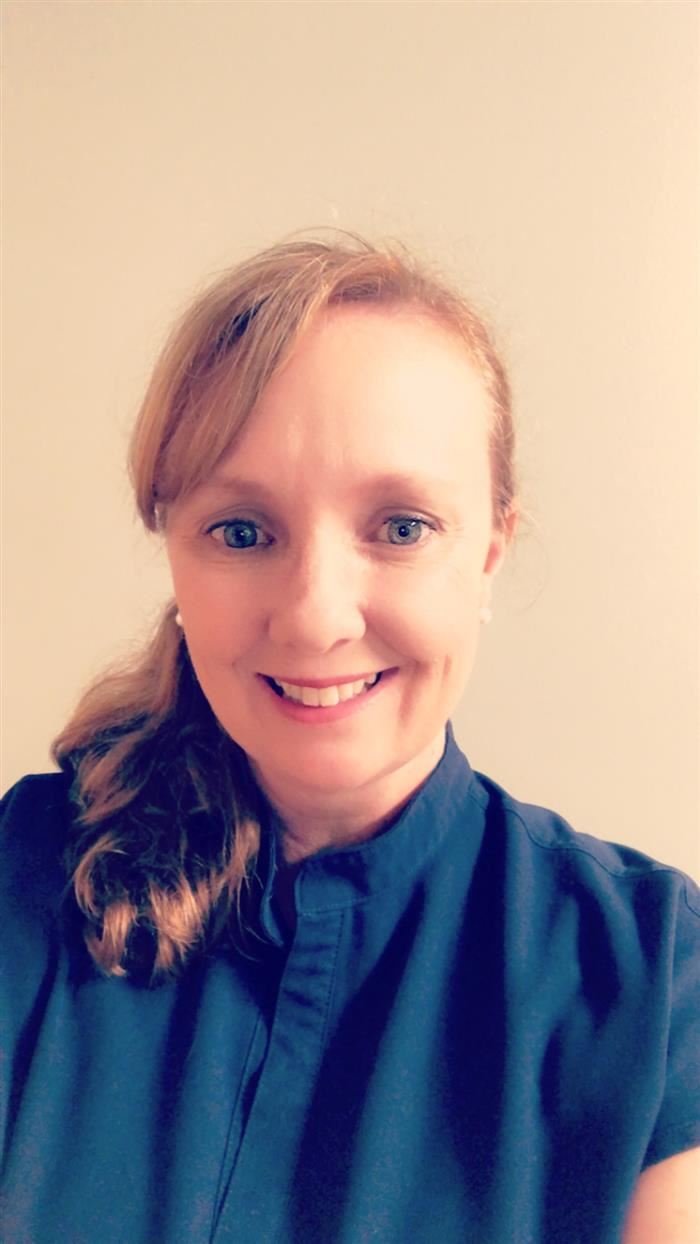-
Automotive Technology I & II- Mr. Chris Tiblier
 The Automotive Technology program is approved by the National Automotive Technical Education Foundation to train students to repair and maintain modern industrial vehicles. Students who enjoy hands-on problem-solving will value the extensive mechanical, electrical, and electronic service performance skills acquired by working on “live” and training vehicles. Our Automotive Technology lab is a technologically rich environment with sophisticated tools required for electronic diagnostics and repair of domestic and foreign vehicles. Graduates are eligible for one year of credit toward the two-year work requirement for Automotive Service Excellence (ASE) automotive technician certification.Construction Core & Carpentry- Mr. Patrick Moore
The Automotive Technology program is approved by the National Automotive Technical Education Foundation to train students to repair and maintain modern industrial vehicles. Students who enjoy hands-on problem-solving will value the extensive mechanical, electrical, and electronic service performance skills acquired by working on “live” and training vehicles. Our Automotive Technology lab is a technologically rich environment with sophisticated tools required for electronic diagnostics and repair of domestic and foreign vehicles. Graduates are eligible for one year of credit toward the two-year work requirement for Automotive Service Excellence (ASE) automotive technician certification.Construction Core & Carpentry- Mr. Patrick Moore Construction Technology offers training for students who want to develop their natural talents and interest in building and construction. Immersed in this diverse career path, students learn to apply the skills taught within our construction technology laboratory. Instruction in commercial and residential construction and remodeling prepares our students to participate in real-world off-site construction projects and on-campus renovations. With safety in mind, hands-on experience is gained by using state-of-the-art power and specialized tools, such as shapers, CNC routers, radial arm saws, planers, jointers, and oscillating sanders. Students build confidence and develop attention to detail while becoming knowledgeable in modern methods and styles of construction.Culinary Arts I & II- Mrs. Jessica Moss
Construction Technology offers training for students who want to develop their natural talents and interest in building and construction. Immersed in this diverse career path, students learn to apply the skills taught within our construction technology laboratory. Instruction in commercial and residential construction and remodeling prepares our students to participate in real-world off-site construction projects and on-campus renovations. With safety in mind, hands-on experience is gained by using state-of-the-art power and specialized tools, such as shapers, CNC routers, radial arm saws, planers, jointers, and oscillating sanders. Students build confidence and develop attention to detail while becoming knowledgeable in modern methods and styles of construction.Culinary Arts I & II- Mrs. Jessica Moss The Culinary Arts Pathway Program is for students who consider themselves enthusiastic foodies and enjoy pairing new and unique flavors and food combinations. In this program, students learn to multi-task, listen carefully, and communicate clearly as they develop the proficiency, knowledge, and skills necessary for success in the food, beverage, and hospitality industry. Students gain authentic food preparation and hospitality skills as they learn to operate our on-campus, full-service Three Seasons Restaurant, which is open to the public throughout the school year.This program was written to incorporate the National Restaurant Associations (NRA) ProStart learning objectives. Any student who successfully completes this program and the mentoring requirements of the NRA can take the National ProStart Certificate of Achievement exam. This is a national certification program that is recognized throughout the food-service industry.Drafting & Design Technology- Mr. Patrick Moore
The Culinary Arts Pathway Program is for students who consider themselves enthusiastic foodies and enjoy pairing new and unique flavors and food combinations. In this program, students learn to multi-task, listen carefully, and communicate clearly as they develop the proficiency, knowledge, and skills necessary for success in the food, beverage, and hospitality industry. Students gain authentic food preparation and hospitality skills as they learn to operate our on-campus, full-service Three Seasons Restaurant, which is open to the public throughout the school year.This program was written to incorporate the National Restaurant Associations (NRA) ProStart learning objectives. Any student who successfully completes this program and the mentoring requirements of the NRA can take the National ProStart Certificate of Achievement exam. This is a national certification program that is recognized throughout the food-service industry.Drafting & Design Technology- Mr. Patrick Moore Drafting & Design Technology students acquire a foundation in design and engineering disciplines through the introduction of mechanical and architectural drafting and engineering principles. Marketable skills are developed in computer-aided drafting (CAD) and computer-aided manufacturing (CAM) are developed by training on state-of-the-art equipment and software. With a focus on mechanical design and product design processes, students will learn to take a product from concept to drawing, to prototype. This program provides students with many exciting opportunities for rewarding, entry-level employment, and career advancement.Early Childhood Education I & II- Mrs. Tracy Wyatt
Drafting & Design Technology students acquire a foundation in design and engineering disciplines through the introduction of mechanical and architectural drafting and engineering principles. Marketable skills are developed in computer-aided drafting (CAD) and computer-aided manufacturing (CAM) are developed by training on state-of-the-art equipment and software. With a focus on mechanical design and product design processes, students will learn to take a product from concept to drawing, to prototype. This program provides students with many exciting opportunities for rewarding, entry-level employment, and career advancement.Early Childhood Education I & II- Mrs. Tracy Wyatt Phone: (228) 374-6924This is a two-year high school program (offering 4 Carnegie units of credit), which includes classroom and hands-on experiences that help to prepare students for employment or continuing education in the early childhood education field. In connection with the Early Childhood Education class, a preschool is located on the Biloxi High School campus which serves as a laboratory training site for high school students enrolled in the class.Early Childhood Education I- This course prepares students for occupations in childcare, preschool, or as a teacher's assistant. Students receive training in child development and psychology, nutrition, health, safety, and planning and carrying out children’s activities. Students in this course will experience hands-on training in the CTE preschool which serves 2, 3 and 4 year olds.
Phone: (228) 374-6924This is a two-year high school program (offering 4 Carnegie units of credit), which includes classroom and hands-on experiences that help to prepare students for employment or continuing education in the early childhood education field. In connection with the Early Childhood Education class, a preschool is located on the Biloxi High School campus which serves as a laboratory training site for high school students enrolled in the class.Early Childhood Education I- This course prepares students for occupations in childcare, preschool, or as a teacher's assistant. Students receive training in child development and psychology, nutrition, health, safety, and planning and carrying out children’s activities. Students in this course will experience hands-on training in the CTE preschool which serves 2, 3 and 4 year olds.Early CHildhood Education II- This course is a continuation of Early Childhood Services and Education I. Attention is focused on management of nursery schools, program planning and children’s activities. Instruction includes classroom training, as well as increased lab and teaching experience in the preschool.
Family and Consumer Sciences (elective credit)- Ms. Kathrin WilliamsFamily and Consumer Sciences (FCS) education in Mississippi consists of the CORE program and specific occupational programs. The CORE program prepares students for living in the real world and helps them develop leadership, problem-solving, decision-making, critical thinking, communication, computer, and mathematical skills. The specific occupational programs focus on career exploration and gaining the skills in a specific profession for entry-level employment or continuation of education. FCS education enhances the leadership potential and essential life skills of its students and encourages life-long learning.Health Science & Clinical Services- Mrs. Connie RolisonHealth Science is a two-year skills program that introduces students to health careers, the basic health sciences, and basic health career skills. In year one, students learn about basic health care skills, legal and ethical health issues, medical terminology, body systems, and health care career possibilities. In Health Science II, the primary emphasis is to engage students in advanced skills while gaining an in-depth knowledge of health care careers, including job shadowing experiences in health care facilities. With patient care a top priority, students receive instruction in anatomy and physiology, growth and development, medical terminology, aging, infectious disease, mental health, and nutrition. Clinical experiences at area hospitals and facilities expose students to the health care worker’s role in long-term care, acute care, rehabilitation, Alzheimer’s, hospice care, and working with those with developmental disabilities.Hospitality & Tourism- Mrs. Jessica BlairHospitality & Tourism introduces students to an industry that encompasses lodging, travel and tourism, recreation, amusements, attractions, and food/beverage operations. Students learn knowledge and skills focusing on communication, time management, and customer service that meet industry standards.Business, Marketing, and Finance - Mrs. Sherri AllenMarketing students find out what it takes to market a product or service in today's fast-paced business environment. They learn the fundamentals of marketing using real-world business examples. They learn about buyer behavior, marketing research principles, demand analysis, distribution, financing, pricing, and product management.STEM (Science Technology Engineering & Math) & Computer Science- Mr. Nick Brett Email: nick.brett@biloxischools.netScience, Technology, Engineering, and Mathematics -STEM Applications is an innovative instructional program that prepares students to engage in future academic and vocational courses of study in high school, community college, and institutions of higher learning. Students in STEM Applications complete study in technology literacy, the design process, emerging technologies, computer-aided design, sustainable design and technology, power and energy, robotics simulation, financial and economic literacy, and workplace skills for the 21st century.
Email: nick.brett@biloxischools.netScience, Technology, Engineering, and Mathematics -STEM Applications is an innovative instructional program that prepares students to engage in future academic and vocational courses of study in high school, community college, and institutions of higher learning. Students in STEM Applications complete study in technology literacy, the design process, emerging technologies, computer-aided design, sustainable design and technology, power and energy, robotics simulation, financial and economic literacy, and workplace skills for the 21st century.The STEM Applications curriculum framework is built upon 21st Century
Skills Standards, ACT College Readiness Standards, and the National Educational Technology Standards for Students.Robotics & Engineering I & II- Mr. Andy Pitts
The Robotics & Engineering program will interest those students who not only think outside the box but want to redesign the box entirely. Students will explore an advanced curriculum focused on mechanical, electrical, civil, and aerospace engineering. Using our state-of-the-art engineering lab, complete with the latest in 3D printers, a wind tunnel, and structural analysis equipment, students learn to develop their critical thinking and problem-solving skills. Working with the end goal in mind, students enjoy collaborating with classmates from our other programs on school projects and in robotics competitions. This course of study offers a complete experience for students wishing to pursue a post-secondary degree in a STEM-related field and for those planning to join the workforce after high school.
Welding I & II- Aaron Gatheright

Email: aaron.gatheright@biloxischools.net
Our two-year two-period welding program is for students who take great pride in a hard day's work well spent. Our program teaches students not only the foundational skills to become a successful welder but also guides them to mold the mind into one of a fabricator. Students are taught and trained to receive nationally recognized credentials, but most importantly, how to be a responsible and exemplary employee. Students learn how to handle the pressures and trials of coworker/boss interactions in a professional manner, while also being taught the importance of punctuality, a clean work area, and taking pride in their work. This is all taught through our one-of-kind job simulated classroom environment. Students have to clock in and are paid for their welding shop work using a classroom commissary/grading system. There are multiple stations that students rotate through, same as a job site.
Welding I:
This Course focuses on the NCCER Learning Series Core. Students will leave the class with a firm foundation of knowledge in the areas of employability skills, safety, and basic tool knowledge. Additionally, students will learn Oxyfuel Cutting fundamentals, equipment setup, safety measures, and correct welding techniques.
Welding II:
This course focuses on specialized welding symbols used in blueprints and drawings as well as PAC, CAC and advanced techniques used in SMAW. Students will learn safety measures, setup procedures, and welding techniques for each type of welding.



